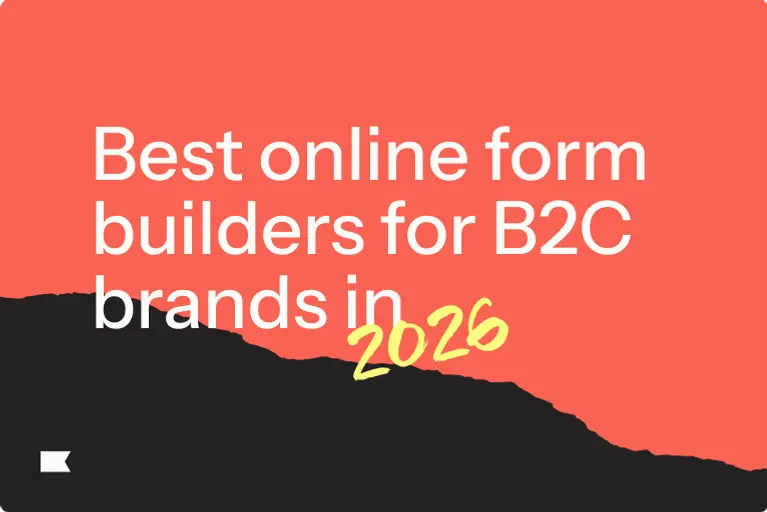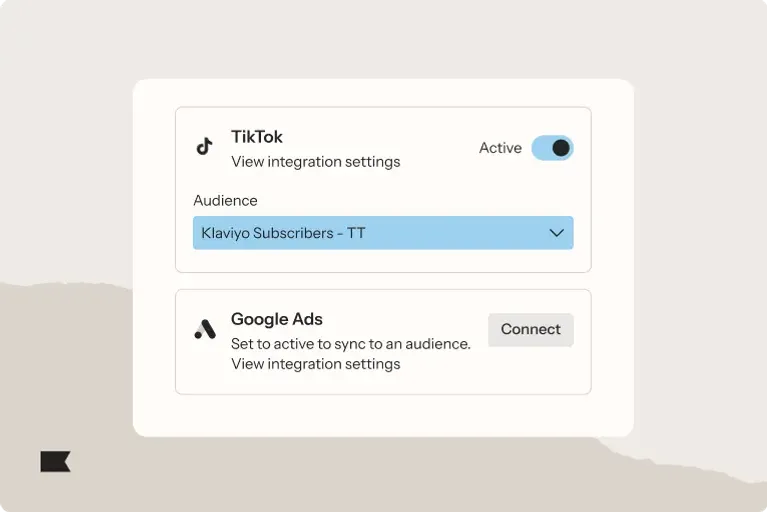Seasoned marketers know the value of leveraging multiple channels. So chances are, you’ve got your message out on social media as well as in paid ads and via your owned channels—email and SMS.
That strategy is probably helping you acquire and retain customers at the level and pace that you want.
But unless you’ve got your head buried in the sand, you’ve heard about the possibility of a TikTok ban on personal devices in the US.
It’s increasingly becoming a bi-partisan issue, with politicians on both sides of the aisle expressing concern not only about data privacy, but also the addictive nature of the TikTok algorithm.
A TikTok ban would have serious implications for ecommerce marketers—especially those who rely on the platform to grow their audience.
But don’t worry. We’ve got tips to:
- Better understand the controversy and context
- Learn where TikTok is already banned
- Make the most of the app while you can
- Prepare for a potential TikTok ban: 3 quick tips
TikTok ban background: why the app is in the spotlight
TikTok is a short-form video and social media app owned by the Chinese company ByteDance.
China’s National Intelligence Law, passed in 2017, makes it obligatory for companies registered in the region to share user data with the government in the name of national security.
So, people are afraid that China could try to use TikTok to:
- Infiltrate devices
- Compromise devices
- Share data about the location of US citizens
TikTok has denied sharing data with the Chinese government. But lawmakers and regulators are still worried that sensitive data of US citizens could make its way into the hands of the Chinese government.
They’re also concerned that China could infiltrate TikTok content to spread misinformation.
Where is TikTok already banned?
Several TikTok bans have already been put in place.
India
India banned the platform in mid-2020, along with 50+ other Chinese-owned apps.
Federal government devices
In December 2022, Congress passed the “No TikTok on Government Devices Act.” Then, in February, the White House, which had already banned TikTok on its devices, gave government agencies 30 days to ban the app from their devices.
Government employees are still able to download the app on personal devices.
US state government devices
As of April 2023, over 25 US states have also banned TikTok from government devices. The animosity deepened when Indiana’s attorney general sued the company, accusing TikTok of lying about privacy risks.
Montana recently became the first state to approve a bill that would make it illegal to download TikTok in the state on any device. It’s currently with the Montana House of Representatives, who will decide if it should be signed into law—in which case, the ban would begin in January 2024.
Marketing on TikTok—and beyond
According to Klaviyo’s recent marketing mix report, email marketing is still the most-used marketing channel among businesses of all sizes, followed by organic social and paid social—both of which include creating and distributing content on TikTok.
Survey respondents also indicated that they plan to increase investment in TikTok in 2023, both in a paid and organic capacity—proving that the interest in this channel is high, and growing, among ecommerce marketers.
Ultimately, unlocking a sustainable marketing strategy will require marketers to identify a marketing mix that balances both paid and owned efforts. Make sure you aren’t only investing in a single marketing or ecommerce advertising platform.
They’ll also be better prepared and positioned when issues arise across third-party platforms like TikTok, Facebook, Instagram, and Google that are notoriously prone to sudden changes.
The TikTok ban is just another example of why it’s imperative that marketers not only spend their time on these third-party channels, but also establish their presence on the channels that they own.
TikTok: honest feedback and brand evangelism
According to Statista, TikTok expects to see over 834M active users in 2023.
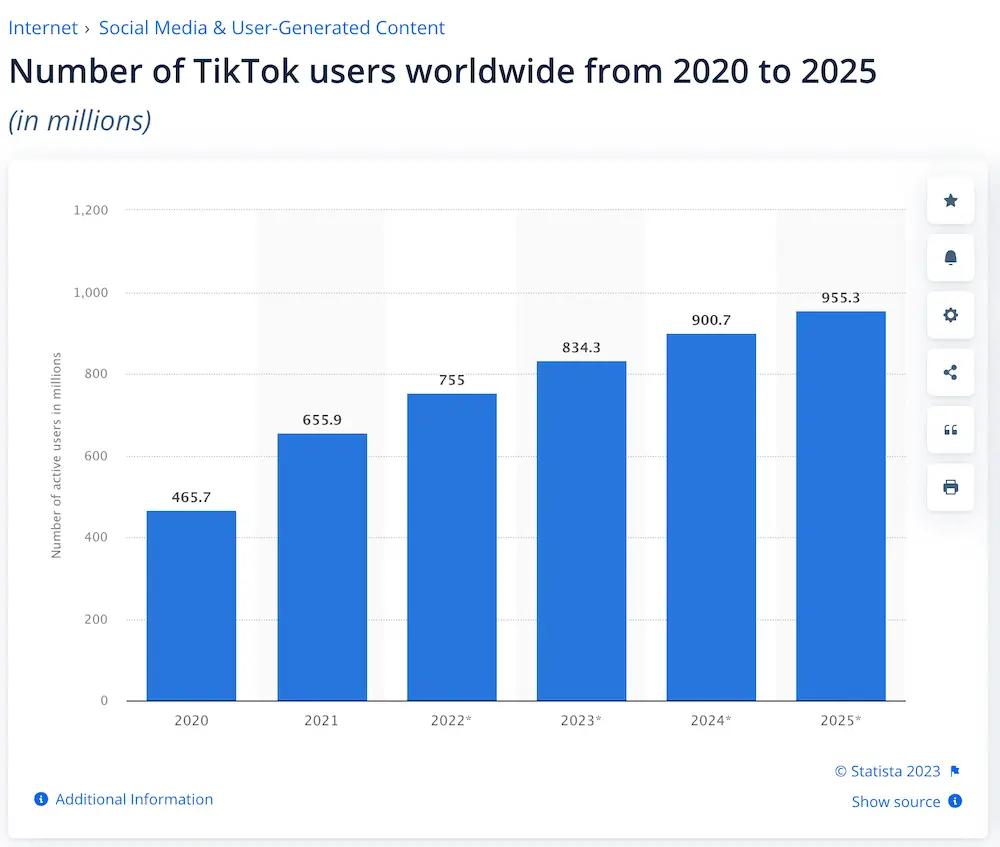
This is a huge opportunity for brands to:
- Reach a younger audience
- Jump on a trend
- Distinguish your brand’s identity
- Share educational content about how to make the most of your products
- Share user-generated content
Cherene Aubert, VP of growth at Bobbie, a baby formula brand, says that choosing TikTok as a marketing channel for the brand was simple: “We want to be where our customers are. More and more, people are turning to TikTok to get honest feedback and search for information.”
We want to be where our customers are. More and more, people are turning to TikTok to get honest feedback and search for information.
It was the brand’s post-purchase survey data that showed how many customers found them on TikTok—even with minimal investment in the app.“New people learn about us through other customers,” Aubert says. “And that signals to us that we should show up there.”

While users are evidently continuing to download, use, and engage with the app, the possibility of a TikTok ban poses bad news for the many marketers who are trying to tap into this audience.
3 quick tips to prepare for a potential TikTok ban
Nervous about the impact of a potential TikTok ban on your brand?
Many marketers don’t think that a ban will pan out, but it’s always best to be prepared.
We’ve got 3 quick steps you can take today to make sure a ban won’t shock your marketing strategy or revenue stream.
Note: by no means should you take the below advice as a suggestion that you should stop marketing or advertising on TikTok. Instead, consider these tips as a way to prepare your business in the case that a ban were to be enforced.
The bottom line? Never be overly-reliant on a single platform to acquire customer or drive revenue.
1. Take stock of where your audience is on social
Yes, TikTok is important. But it’s also largely directed at users under 30 years old. As of January 2023, most TikTok users are under 25. Once you get to users 35 and up, the numbers dwindle.
So, depending on what demographics you serve, the possibility of losing TikTok as a marketing channel might not affect you that much.
Aubert shares that while the app is important, the majority of Bobbie’s audience is more active on Meta platforms.
“While TikTok is a channel we’re growing and testing, we’re not overly reliant on it,” Aubert explains. “We assume that customers currently on TikTok would shift to other platforms. As long as we’re a part of the natural buyer’s journey—making consumers aware we exist and showing up where consumers are doing their research—we’ll be fine.”
2. Invest in additional social channels
“Turning off any one channel wouldn’t hurt our business,” Aubert says. “So much of our growth strategy has been to invest in an exceptional product and brand.”
She offers sound advice: “Putting too many eggs in one basket is always going to be risky.”
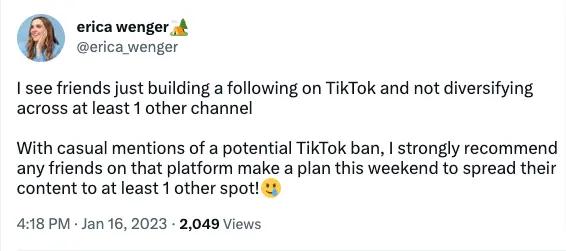
While Bobbie’sTikTok and Instagram posts both include a mix of fun, inspirational, educational, and serious content, the content on Instagram tends to skew more serious.
Putting too many eggs in one basket is always going to be risky.
As you prepare for a potential TikTok ban, consider experimenting with different content, tones, and levels of seriousness on different channels and see how it resonates with your audience.
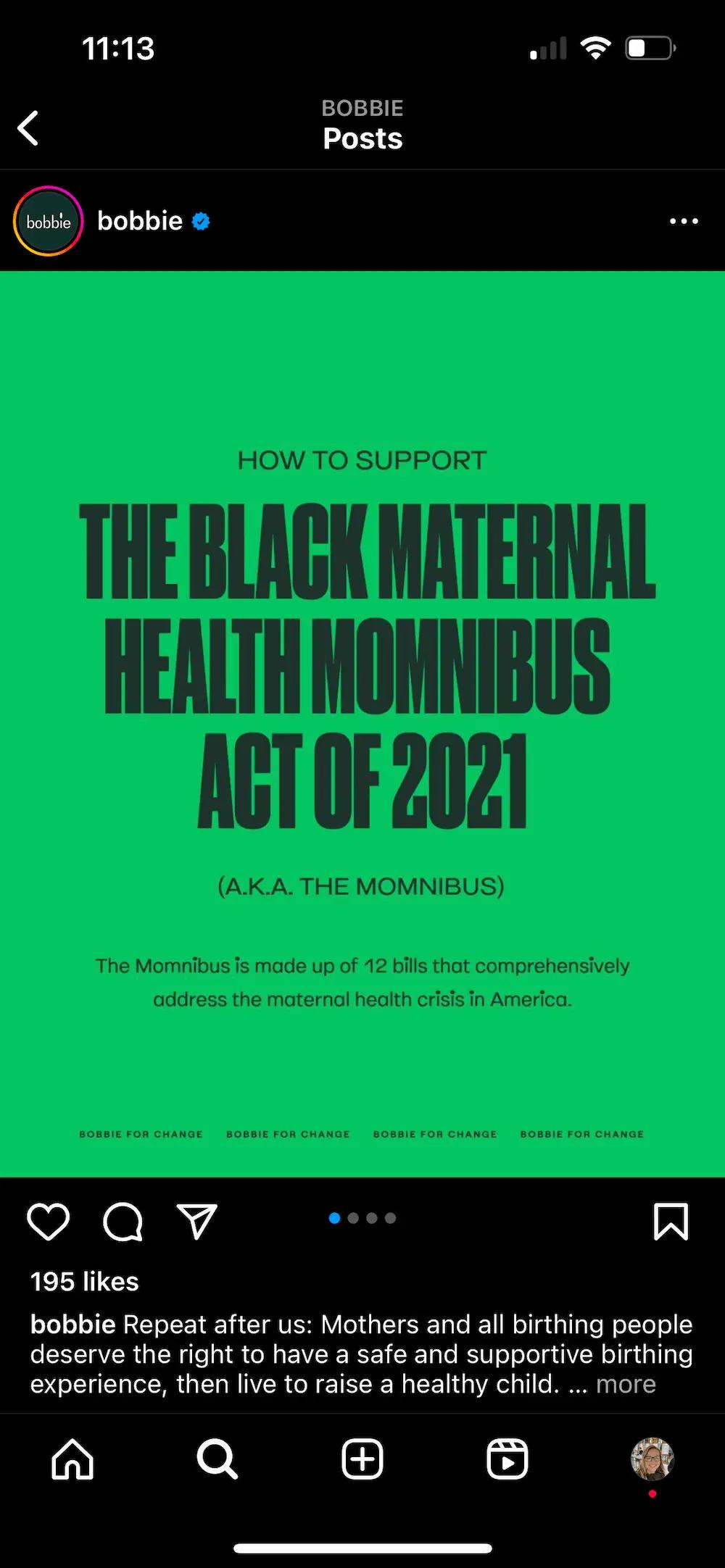
Additionally, many marketers are repurposing their TikToks for Instagram reels or experimenting with YouTube Shorts. If you feel like you’ve found your sweet spot making short-form videos and that the content you’re producing on TikTok is already well-aligned to your brand, this is an option worth exploring in addition to your current strategy—and it’ll set you up for success by allowing you to establish an audience before a ban goes into place, if it were to happen.
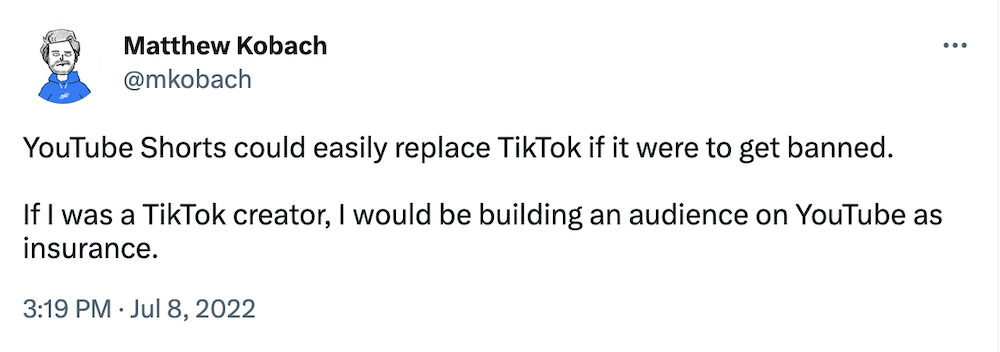
Some brands are checking out Lemon8, a Pinterest-like app that focuses more on photos than videos, setting it apart from TikTok. But before you start investing time there, note that it, like TikTok, was also launched by ByteDance. While this makes it compelling to marketers and creators because the algorithm will be similar to TikTok’s, you may run into the same data privacy concerns down the line.
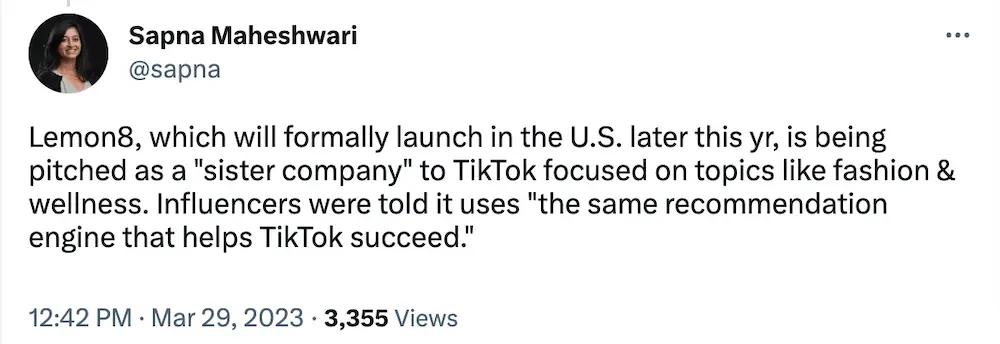
3. Make sure your owned marketing strategy is solid
By now, most marketers agree that third-party platforms, especially social channels, are always going to pose a risk.
You may have pivoted after iOS 14, only to continue experiencing glitches on Meta.
Or you may be one of the many brands that have struggled for years to decipher the vague rules and regulations third-party platforms have in place around advertising.

Put simply, email marketing is one of the most cost-effective ways to stay relevant to your customers. And as an owned channel, it’s not susceptible to change the way “rented” channels are.
According to Klaviyo benchmarks, basic, easy-to-implement flows such as abandoned cart emails and welcome emails see high RPRs—sometimes over $3.50. And Klaviyo’s marketing mix report identified email marketing as not only the most-used marketing channel across businesses of all sizes, but also the one that generates the most ROI.
It’s also a good idea to invest more in your SMS program—along with email, it’s one of the few channels you truly own. Recent research shows that Gen Zs prefer SMS messages from brands over other forms of communication. And Klaviyo’s marketing mix report found that businesses that make $20M+ in annual revenue, in particular, are already seeing SMS pay off in a major way.
When you’re up against inflation and a looming recession, and uncertainty coming from various directions, it’s forward-thinking to invest energy into email and SMS marketing.
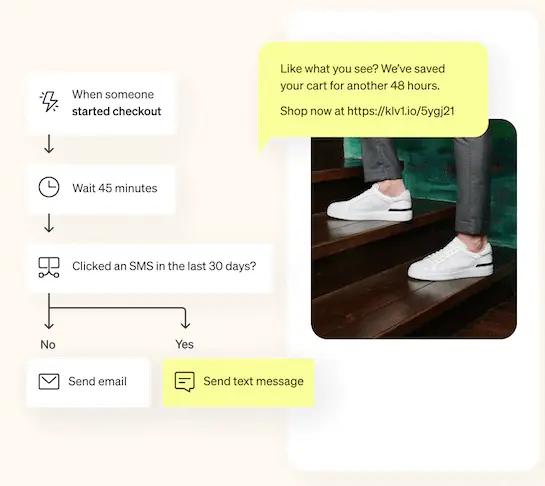
Running out the clock on third-party platforms
So far, 2023 has been a tense, unpredictable year for commerce. A potential TikTok ban could throw another wrench in the wheel of your marketing plans.
Our best advice? Hang onto TikTok for as long as it’s profitable for your brand, but put some extra energy and love into your owned channels.
Talk to your customers like you know them. Because you do.
Try Klaviyo today
